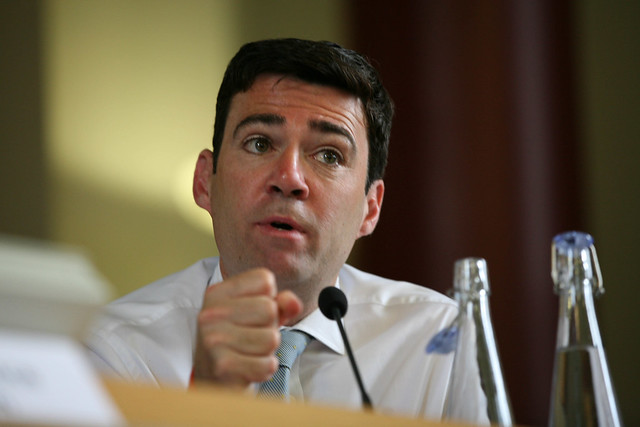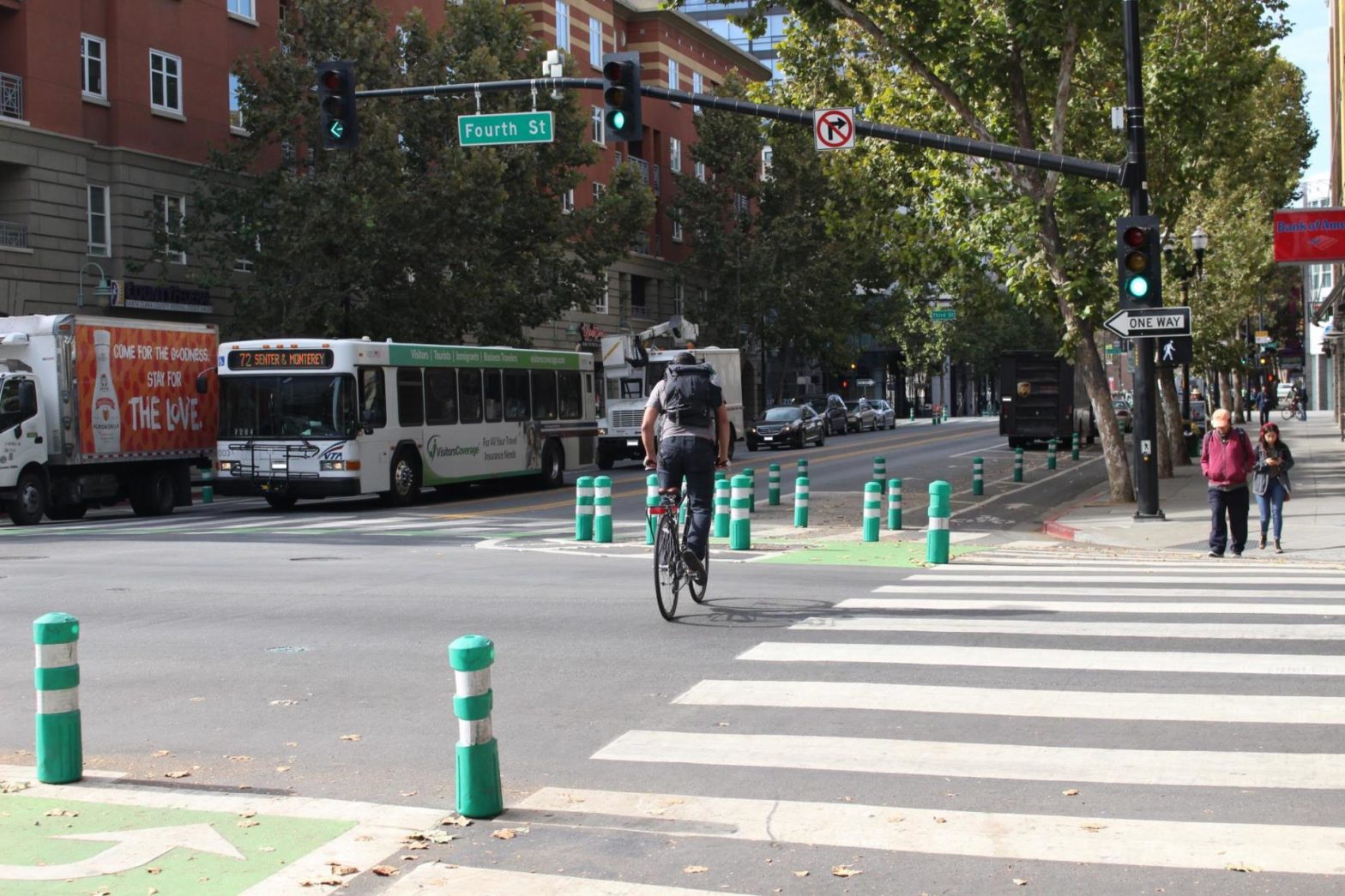
Photo: The BMA (Flickr)
Manchester asks UK government to rethink Clean Air Zone
24 January 2022
by Christopher Carey
Plans to introduce charges on Manchester’s most polluting vehicles are in doubt after the city’s Combined Authority referred plans for a proposed Clean Air Zone (CAZ) back to the UK government for review.
From 30 May, emission-emitting buses, coaches, taxis, private hire vehicles, heavy goods vehicles and vans – but not private cars – are set to be charged between £7.50 (US$10) and £60 daily under a government-mandated plan.
But the city’s ten councils, which along with the Mayor for Greater Manchester make up the Greater Manchester Combined Authority (GMCA), have now voted to refer plans back to the UK government.
Following a meeting at Manchester Town Hall, Greater Manchester Mayor Andy Burnham tweeted to say council leaders had tried to make the scheme work.
“I am pleased that Greater Manchester councils have just voted to refer the Clean Air Zone back to the government,” Burnham said on Twitter.
“Greater Manchester has tried in good faith to make the government’s legal direction work. However, changes in the vehicle market mean it is impossible to proceed on the current basis without causing real hardship to some of our residents.”
The rising cost of raw materials used in the manufacturing of electric vehicles (EVs), such as lithium, is expected to have a knock-on effect on prices in the coming months, along with delays in new EVs being delivered.
Controversy
Approximately 1,200 premature deaths each year in Greater Manchester are linked to air pollution.
In March 2020, the UK government issued a legal mandate requiring the city’s councils to address air pollution by introducing a CAZ which would charge the city’s most polluting vehicles.
But the proposals have been controversial since they were announced, with petitions and protests – including livestock being taken on public transport to highlight the financial hardships facing the region’s farmers – putting pressure on politicians.
The GMCA has been given a deadline of 2024 to comply with legal air quality standards, but says government funding to operate the scheme – £120 million to date – is not sufficient to help individuals and businesses cope with the changes.
In a letter to the UK government’s Environment Secretary, Greater Manchester’s ten councils requested a pause on the second phase of CAZ funding, and asked for a “fundamental review” of vehicle supply chain issues.
The councils say they are committed to the launch of the zone in May, but changes need to be made to current plans.
“We remain committed to tackling illegal levels of air pollution in Greater Manchester as soon as possible,” Burnham added.
“I am listening to people’s concerns and will always stand up for Greater Manchester. I am not the final decision-maker but will do everything I can, working with government, to get this to the right place.”
Clean air zones
The UK government directed several cities to introduce CAZs, after the Supreme Court ordered ministers in 2015 to take immediate action to cut air pollution.
Zones have since been introduced in Bath, Birmingham and Portsmouth, with Bradford set to introduce a scheme this year.
Plans for what would have been the UK’s largest congestion charging zone were rejected by Manchester residents in 2008 after a city-wide referendum.
Image: The BMA (Flickr)











